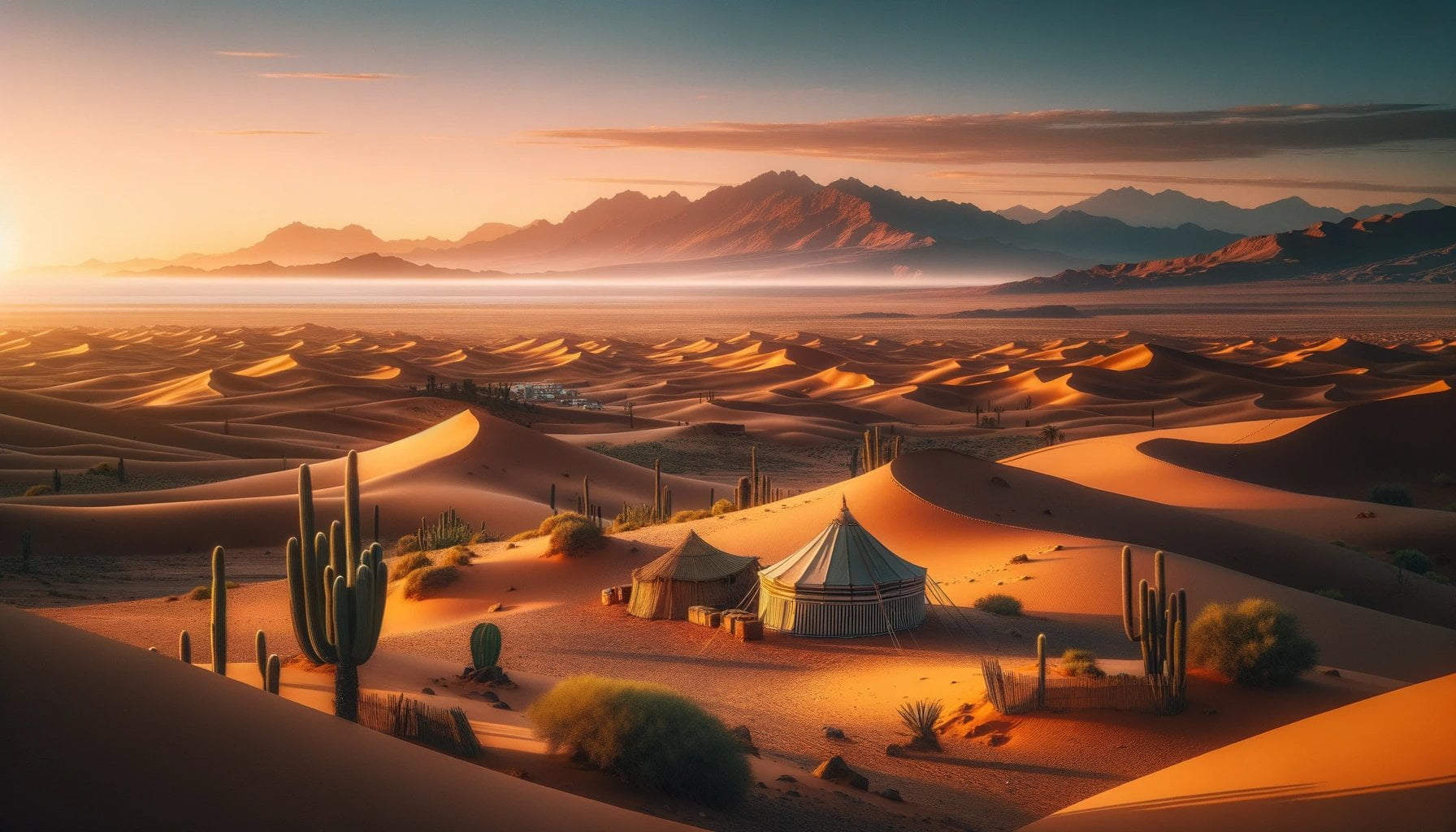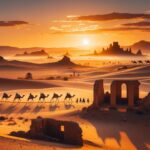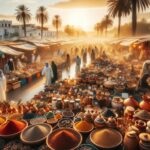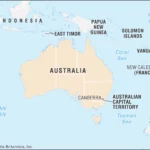Unveiling Algeria: Fascinating Facts About the North African Nation. Discover the intriguing country of Algeria, which gained independence from France in 1962. With Arabic as its official language and Algiers as its capital city, Algeria holds the title of being the largest country in Africa. But there is so much more to this vibrant nation than meets the eye. Join us as we delve into the lesser-known facts about Algeria, from its rich history to its breathtaking landscapes and vibrant culture. Get ready to uncover the secrets of this fascinating North African gem.
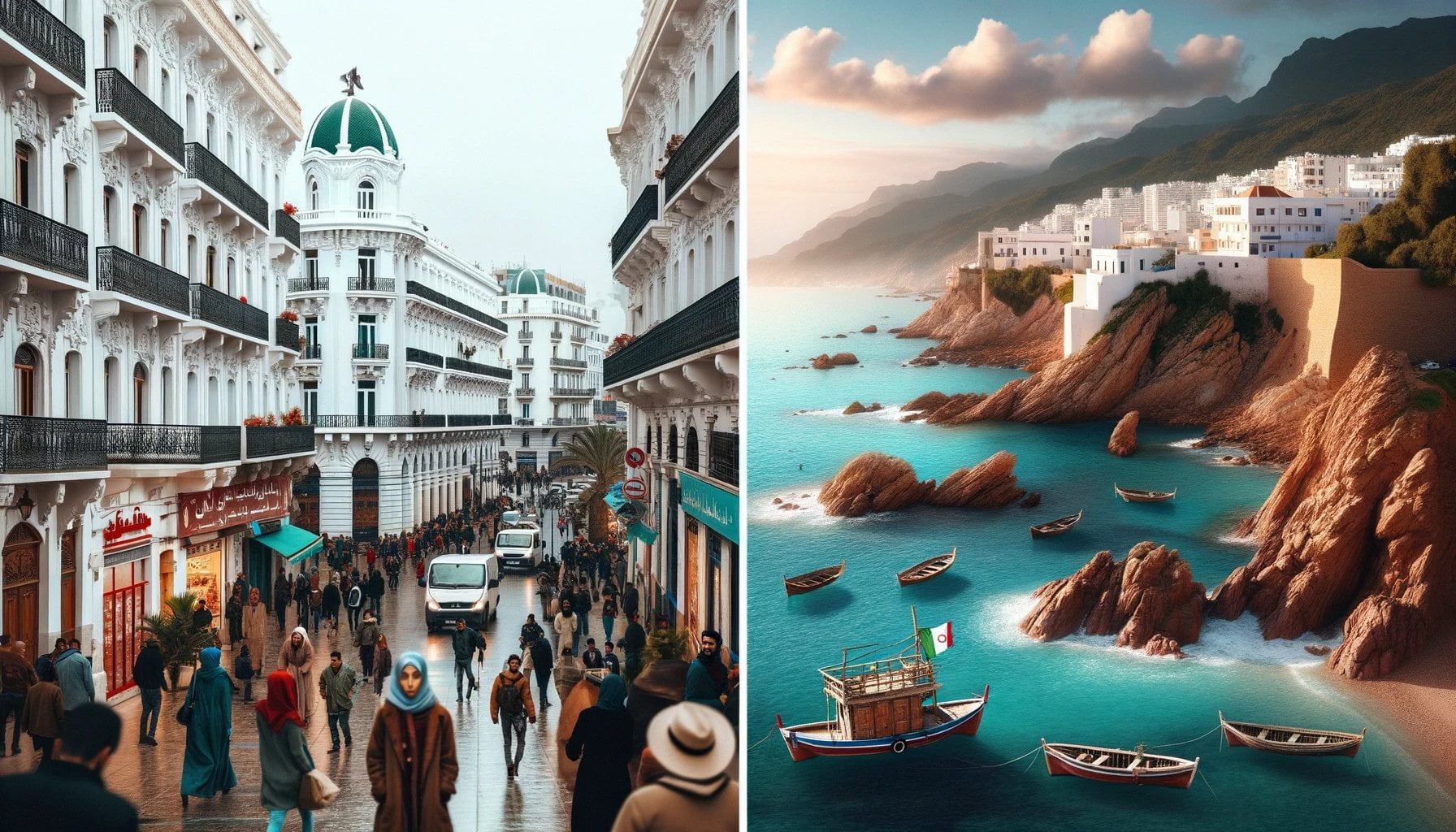
Key Takeaways:
- Algeria is the largest country in Africa and the 10th largest in the world, with the majority of its land covered by the Sahara desert.
- The population of Algeria is approximately 46 million, with a dominant Arab population and a significant Amazigh minority.
- Algeria is a multi-party constitutional republic, with Arabic as the official language and French widely spoken.
- Algeria possesses the 16th largest oil reserves and the 9th largest natural gas reserves globally.
- The capital and largest city of Algeria is Algiers.
Facts About Algeria
Algeria, a captivating country in North Africa, holds a treasure trove of intriguing facts that are often overshadowed by its more well-known counterparts. Let’s delve into the unique aspects of this mesmerizing nation and uncover some fascinating details.
Algeria: A Land of Boundless Beauty
Algeria boasts sheer vastness, occupying the title of the largest country in Africa and the 10th largest in the world. Within its expansive borders, over four-fifths of the land is adorned by the magnificent Sahara desert, a mesmerizing sight that stretches endlessly. Its breathtaking landscapes, from rolling sand dunes to rocky mountain ranges, have lured adventurous souls from across the globe.
A Mosaic of Cultures and Languages
Algeria thrives as a multicultural society, with a population of approximately 46 million people. The majority of Algerians identify as Arab, while a significant minority, known as the Amazigh, add distinctiveness to the country’s cultural heritage. Most Algerians reside along the pristine Mediterranean coast, where bustling cities and tranquil towns coexist in perfect harmony.
Languages paint a rich and diverse linguistic tapestry in Algeria. Arabic is the official language, but the national language, Tamazight, proudly represents the Amazigh heritage. Additionally, French remains widely spoken due to the country’s colonial past, adding a touch of international flair to daily conversations.
A Wealth of Natural Resources
Algeria stands as a powerhouse of natural resources, enriching both its economy and global significance. The country is renowned for its vast oil reserves, ranking 16th in the world, and its abundant natural gas reserves, coming in at an impressive 9th globally. These resources have catapulted Algeria onto the global stage, shaping its geopolitical dynamics and fostering economic opportunities.
Algiers: The Enchanting Capital
Algiers, the captivating capital of Algeria, captures the essence of the nation in its bustling streets and vibrant atmosphere. The city serves as the beating heart of Algeria, blending its Islamic heritage with a progressive urban center. From the ancient Casbah district with its narrow alleys and charming souks to the French colonial architecture scattered throughout, Algiers is a captivating fusion of tradition and modernity.
Unveiling Algeria’s Lesser-Known Facts
As we journey through Algeria’s captivating tapestry of landscapes, cultures, and resources, we uncover a nation with rich history, diverse heritage, and remarkable progress. Algeria’s fascinating facts, often hidden from the well-trodden path, reveal a nation that is as unique as it is enthralling.
So, let us explore the captivating stories etched within Algeria’s borders and embrace the remarkable journey that awaits us in this enigmatic North African gem.
Citation:
– source 1
– source 2
Algeria is a country with rich cultural heritage and a fascinating history. If you want to immerse yourself in the vibrant Algerian culture, click here to discover more. If you’re interested in delving into the intriguing history of Algeria, explore our article on Algeria history. Are you curious about the famous places in Algeria that you should visit? Click here for a list of must-see destinations. And if you’re a food lover, don’t miss out on experiencing the delectable flavors of Algeria’s cuisine. Click here to learn more about Algeria’s culinary delights.
The capital city of Algeria is Algiers
Algiers, the capital city of Algeria, holds a rich history dating back to its foundation in 944. Situated at coordinates 36.7538° N, 3.0588° E, and an elevation of 7′ ft, Algiers is the largest city in Algeria. Known for its political significance, Algiers is home to the Presidential Palace and serves as the country’s economic and cultural center.
With an estimated population of around 4.5 million in 2020, Algiers is a bustling metropolis that represents the heart of Algeria. The city’s location on the west side of the Bay of Algiers, along the beautiful Mediterranean Sea, adds to its allure.
Algiers’ architectural character reflects the influence of its historical founders, the Phoenicians. Under Carthaginian and Roman rule, the city was known as Icosium and stood as a testament to its strategic importance. Today, the contemporary city has preserved much of its architectural charm, showcasing a unique blend of Islamic and European influences.
The demographics of Algiers have been shaped by Arab migration since the 7th century. As a result, Arabic is the official language of Algeria, while Berber, the native language of the Amazigh people, also holds official status. It is worth noting that French is widely spoken due to Algeria’s colonial past.
Islam is the official religion of Algeria and deeply permeates the cultural fabric of Algiers. Traditional Muslim clothing is commonly embraced, particularly in urban areas, adding vibrant splashes of color to the city’s streets.
Algiers experiences a Mediterranean climate characterized by hot and dry summers, along with mild and wet winters. This climate contributes to Algiers’ natural beauty and allows visitors to enjoy the city’s breathtaking landscapes throughout the year.
In summary, Algiers stands as the captivating capital of Algeria; a dynamic city representing the political, economic, and cultural aspects of the nation. From its historical roots to its architectural charm, Algiers offers a unique glimpse into the rich tapestry that is Algeria’s past and present.
Key Takeaways:
- Algiers, the capital city of Algeria, was founded in 944 and has been the capital since 1962.
- It is the largest city in Algeria and holds political significance as the location of the Presidential Palace.
- The population of Algiers was approximately 4.5 million in 2020, making it a bustling metropolis.
- The city is situated on the west side of the Bay of Algiers in the Mediterranean Sea.
- Algiers preserves much of its architectural character and showcases a blend of Islamic and European influences.
- Algiers has been influenced by Arab migration, resulting in Arabic and Berber being official languages.
- Islam is the official religion, and traditional Muslim clothing is commonly embraced in urban areas.
- Algiers experiences a Mediterranean climate with hot, dry summers and mild, wet winters.
Sources:
– World Population Review
– Wikipedia
Algeria is the largest country in Africa.
Algeria, the grandeur of North Africa, is known for its vastness and intriguing characteristics. As the largest country in Africa, it stretches across an impressive land area of 2,381,741 square kilometers (919,595 square miles) [^1^]. Picture an expanse so immense that it surpasses the size of any other African nation. With its awe-inspiring dimensions, Algeria proudly holds the title of the largest country on the continent.
This North African gem encompasses a diverse range of landscapes and climates. Over 90% of its landmass is covered by the Sahara desert, an extreme terrain that shapes the nation’s reality [^1^]. Imagine the vast stretches of golden dunes and the mesmerizing beauty that lies within this desert region. This desert dominion not only contributes to Algeria’s unique geographical profile but also influences its climate, transforming the nation into a land of harsh desert conditions.
While the majority of Algeria’s land remains uninhabited due to the challenging desert environment, approximately 12% of the land is home to its vibrant population [^1^]. Most Algerians reside in the fertile northern regions, where they have built bustling cities and cultivated a rich cultural heritage. This stark juxtaposition between arid desert landscapes and thriving communities perfectly encapsulates the essence of Algeria.
Algeria’s border spans across various nations, enhancing its strategic geographical importance. It shares borders with Tunisia to the northeast, Libya to the east, Niger to the southeast, Mali and Mauritania to the southwest, Western Sahara to the west, and Morocco to the northwest [^2^]. With such a diverse range of neighboring countries, Algeria’s geographical position provides a vantage point for cultural exchange and political dynamics within the Maghreb region of Northwest Africa.
The picturesque Mediterranean Sea gracefully caresses Algeria’s northern coastline, offering stunning vistas and a gateway to maritime exploration [^2^]. Experience the beauty of Algeria’s shores as they meet the azure waters of the sea. This coastal allure adds another layer of diversity to Algeria’s geography, completing the nation’s multifaceted natural landscape.
In conclusion, as we unveil Algeria, we come to appreciate the impressive dimensions that make it the largest country in Africa. Its vastness blends harmoniously with the Sahara desert and the richness of its cultural heritage. Algeria’s unique position in the Maghreb region and its breathtaking coastal vistas contribute to its unparalleled charm. Now that we have explored its fascinating facts, Algeria beckons us to delve further into its history, culture, and untold stories.
Key Takeaways:
– Algeria claims the title of the largest country in Africa, stretching across 2,381,741 square kilometers [^1^].
– Over 90% of Algeria’s land is covered by the Sahara desert, resulting in extreme desert climate conditions [^1^].
– The northern regions are home to the majority of Algeria’s population, while the southern areas are predominantly uninhabited [^1^].
– Algeria shares borders with Tunisia, Libya, Niger, Mali, Mauritania, Western Sahara, and Morocco [^2^].
– The Mediterranean Sea lies to the north of Algeria, offering stunning coastal views [^2^].
Sources:
[^1^]: Wikipedia – Geography of Algeria
[^2^]: Wikipedia – Algeria Overview
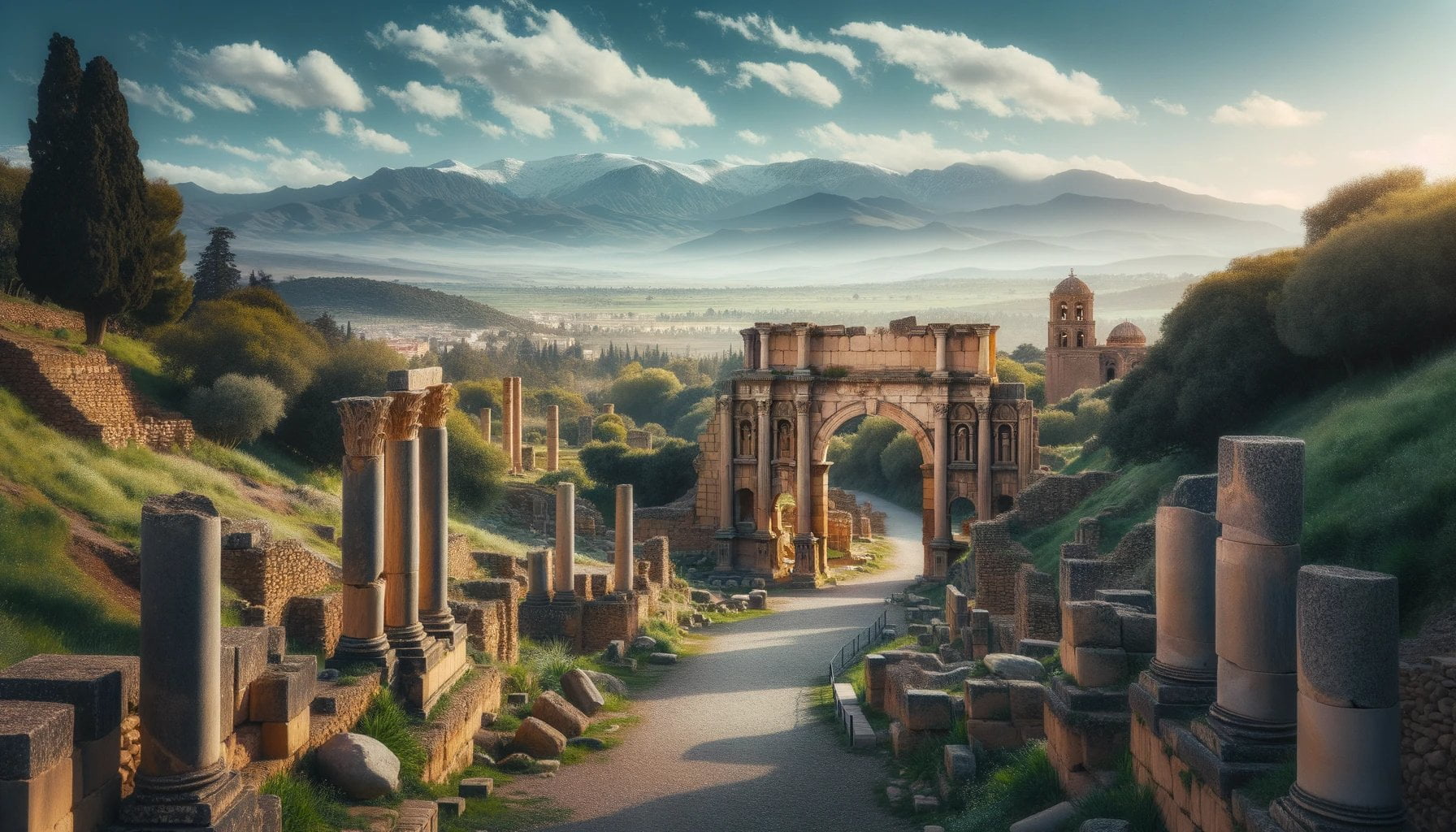
FAQ
Q1: When did Algeria gain independence from France?
A1: Algeria gained independence from France in 1962.
Q2: What is the official language of Algeria?
A2: The official language of Algeria is Arabic.
Q3: What is the capital city of Algeria?
A3: The capital city of Algeria is Algiers.
Q4: Is Algeria the largest country in Africa?
A4: Yes, Algeria is the largest country in Africa.
Q5: What is the population of Algeria?
A5: The population of Algeria is approximately 46 million people.
- China II Review: Delicious Food & Speedy Service - April 17, 2025
- Understand Virginia’s Flag: History & Debate - April 17, 2025
- Explore Long Island’s Map: Unique Regions & Insights - April 17, 2025
